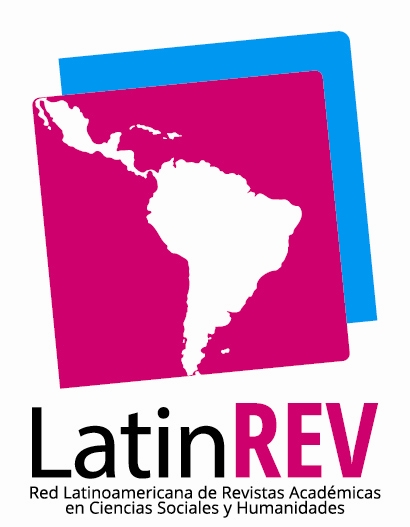Latin American musical intangible cultural heritage in its pedagogical-political dimension
Keywords:
música, patrimonio cultural inmaterial, curriculumAbstract
The definition of intangible cultural heritage proposed by the Convention for the Safeguarding of the Intangible Cultural Heritage, established by UNESCO in 2003, includes popular music. In this regard, and also following the Convention, the safeguarding of such heritage is directly related to measures aimed at guaranteeing the viability of intangible cultural heritage, basically through formal and non-formal education. This leads us to ask ourselves about the ways of teaching music in our country. In general, until the mid-1990s, the music taught at schools and universities fell within a Central European matrix of the "French school", and it was only since 1994 when popular music university curricula began to take shape. In this context, the Technical Degree in Music Production of the National University of San Luis is the first university program in Argentina with such a characteristic. This work aims to show how the institutions of formal education in our country have played an important role in the denial and invisibility of musical heritage or popular music, in favor of the Central European Musical Canon. Finally, it is confirmed that the formal teaching of Latin American popular music has been taking on an increasingly important role in recent years, with the growing inclusion of this music in school, tertiary and university curricula.
Downloads
References
Adorno, Theodor (2002). “On Popular music”, en Leppert, Richard (2002) Essays on Music. Berkeley and California: University of California Press, 437-469 (Versión Original, 1941).
Adorno, Theodor (2012). “Sobre la Música popular”, en Rodríguez Ferrandi (coord.). La polémica sobre la Cultura de masas en el período de entreguerras. Una antología. Sevilla: Universidad de Valencia, 217-261 (Versión Original, 1941).
Aharonián, Coriún (2001). Músicas Populares y Educación en América Latina. III Congreso de la IASPM-LA. Recuperado de: http://iaspmal.com/index.php/2016/03/02/actas-iii-congreso-bogota-colombia-2000/ (05/04/2020).
Aharonián, Coriún (2004). Educación, arte, música. Montevideo: Ediciones Tacuabé.
Alencar de Pinto, Guilherme (2004). “Mostrar lo extraña que es la normalidad. Entrevista a Philip Tagg.” Publicada en Revista Brecha el 12/07/2004, Uruguay. Recuperado de: https://tagg.org/articles/brechaivw0407.htm (22/04/2020).
Bartók, Béla (1979). Escritos sobre música popular. Madrid: Siglo veintiuno editores.
Carabetta, Silvia (2008). Sonidos y silencios en la formación de los docentes de música. Buenos Aires: MAIPUE.
Casalla, Mario (1977). Crisis de Europa y Reconstrucción del Hombre. Un ensayo sobre Martín Heidegger. Buenos Aires: Ediciones Castañeda.
Castro Gómez, Santiago (2000). “Ciencias sociales, violencia epistémica y el problema de la ‘invención’ del otro”, en Lander, Edgardo (Comp.) La colonialidad del saber: eurocentrismo y ciencias sociales. Buenos Aires: Perspectivas latinoamericanas.
Castro Gómez, Santiago y Grosfoguel, Ramón (2007). El Giro Decolonial. Reflexiones para una diversidad epistémica más allá del capitalismo global. Bogotá: Siglo del Hombre Editores; Universidad Central, Instituto de Estudios Sociales Contemporáneos y Pontificia Universidad Javeriana, Instituto Pensar.
Dussel, Enrique (1994). 1492 El Encubrimiento del Otro. Hacia el origen del mito de la modernidad. La Paz: Plural Editores.
Dussel, Enrique (2020). “Siete hipótesis para una estética de la liberación”, en Tellez, Enrique (Ed.) Para una estética de la liberación decolonial. Ediciones del Lirio. México.
Flores Rodrigo, Susana (2007). “Música y adolescencia: la música popular actual como herramienta en la educación musical”. UNED. Universidad Nacional de Educación a Distancia (España). Recuperado de: http://www.injuve.es/sites/default/files/9322-14.pdf (12/03/2022)
Fouce, Héctor y Martínez, Silvia (2007). “Entrevista a Richard Middleton: La música popular ya no existe; todas las músicas son ahora populares”. Etno, Boletín Informativo de la SIBE. Nº 16, 11-13. Recuperado de: https://www.sibetrans.com/public/docs/etno-boletin-n16-septiembre-2007.pdf (13/08/2022).
Gimeno-Sacristán, José (2010). “¿Qué significa el currículum?”, en Revista Sinéctica, N° 34, Tlaquepaque ene./jun. Recuperado de:
http://www.scielo.org.mx/scielo.php?script=sci_arttext&pid=S1665-109X2010000100009 (12/08/2021).
González Rodríguez, Juan Pablo (2007). “Aportes de la Musicología a la enseñanza de la Música Popular”, en Actas del I Congreso latinoamericano de formación académica en música popular: Abordaje de la Música Popular en el ámbito Académico: conflictos, debates, aportes, dicotomías, opiniones, sugerencias, experiencias, expectativas, logros. Villa María, Córdoba. República Argentina. 16, 17, 18 y 19 de mayo de 2007. Recuperado de: https://fubainvestigadores.files.wordpress.com/2013/04/aportes-de-la-musicologia-a-la-ensec3b1anza-de-la-musica-popular.pdf (20/04/2020).
Green, Lucy. (2002). How Popular Musicians Learn: A Way Ahead for Music Education Ashgate Popular and Folk Music Series. United Kingdom: Ashgate Publishing.
Grosfoguel, Ramón (2007). “Descolonizando los universalismos occidentales: el pluri-versalismo transmoderno decolonial desde Aimé Césaire hasta los zapatistas”, en Castro-Gómez, Santiago y Grosfoguel, Ramón (Comps). El giro decolonial: reflexiones para una diversidad epistémica más allá del capitalismo global. Bogotá: Siglo del Hombre / Universidad Central / Instituto de Estudios Sociales Contemporáneos y Pontificia Universidad Javeriana / Instituto Pensar.
Kingsbury, Henry (1988). Music, Talent and Performance: A Conservatory Cultural System. Philadelphia: Temple University Press.
Downloads
Published
Issue
Section
ARK
License
Copyright (c) 2022 Cándido Sanz García , Ramón Sanz Ferramola

This work is licensed under a Creative Commons Attribution 4.0 International License.






